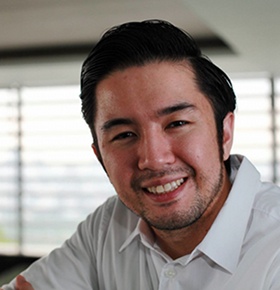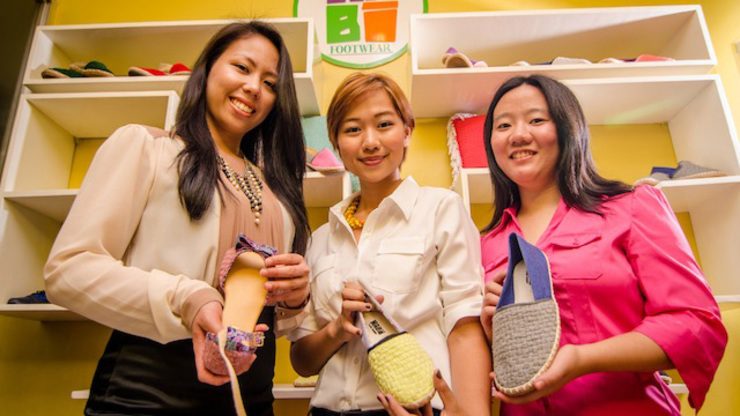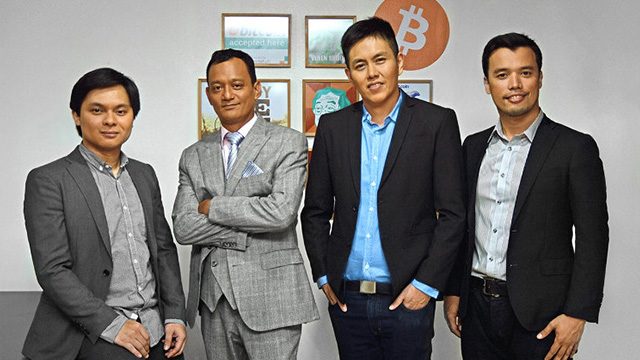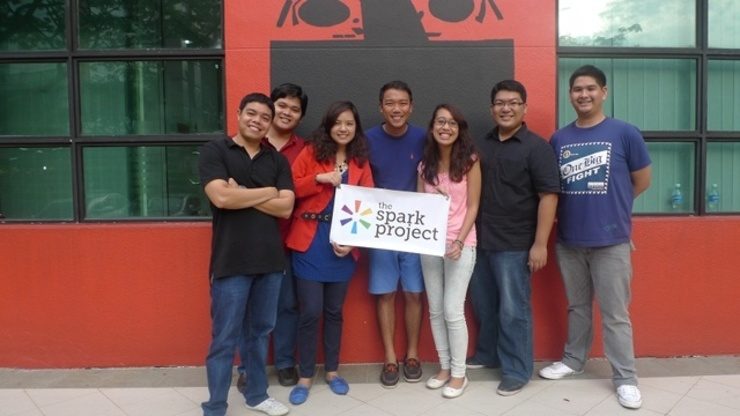SUMMARY
This is AI generated summarization, which may have errors. For context, always refer to the full article.
 Filipino culture values humility, and I’ve on occasion seen this tendency in entrepreneurs, who may demure from talking about their own accomplishments or that of their company’s. Luckily, as a third party, I can. I can tell you about all the great and inspiring and impressive work that local tech entrepreneurs and social entrepreneurs are doing.
Filipino culture values humility, and I’ve on occasion seen this tendency in entrepreneurs, who may demure from talking about their own accomplishments or that of their company’s. Luckily, as a third party, I can. I can tell you about all the great and inspiring and impressive work that local tech entrepreneurs and social entrepreneurs are doing.
By virtue of this being a list, people will necessarily be left out. But the great thing about Philippine entrepreneurship and business in 2014 is that – if I really wanted to – I could produce dozens of lists of this sort. There are just so many exciting things going on in the community.
The people below are merely some of the people I’ve had the privilege of writing about in the past for Rappler. Here, you’ll find why I was compelled to write about them in the first place and why I personally find them inspirational. So please take the entrepreneurs and social entrepreneurs mentioned below as examples of the talent and inspiration that you can undoubtedly find throughout the Philippines and from Filipinos around the world.
Janine Chiong, co-founder of Habi Footwear

When most students study business or entrepreneurship in college, they merely think of their education as preparation for the distant future. Chiong did things a little differently. She took her thesis project and grew it into a real business, or what most people know as Habi Footwear today. As part of her thesis project at Ateneo de Manila University, Chiong and her two teammates – Paola Savillo and Bernadee Uy – visited a small community in Quezon City. The mothers that they met there would eventually upcycle the cloth used in Habi Footwear’s shoes, work for which they are paid well above standard market rates.
Nick Galan, co-founder and CEO of Satoshi Citadel Industries

Most entrepreneurs struggle to make one business – Galan and his team have launched six ventures, all in a span of three months. Satoshi Citadel Industries is an umbrella company for Bitcoin-related ventures in the Philippines. One of them is Bitmarket, which provides point of sale systems to merchants so that they can accept the cryptocurrency. SCI’s other ventures are no less innovative or bold – Bitstars, for example, is a selfie-posting site that offers a daily prize in Bitcoin. All their ventures are united under the common goal of driving Bitcoin adoption in the Philippines, which Galan feels can economically uplift the country.
Josh Mahinay, founder of Bag 943

TOMS Shoes popularized the one-for-one model in the United States. For every pair of TOMS Shoes that a person buys, another pair is donated to a person in need, usually in a developing country. While this model is simple enough, importing it and localizing it to the Philippines is no easy feat. Social entrepreneurship is not as known here as it is in the US, and Filipinos are often inherently distrustful of campaigns that are promoted as serving the social good. Mahinay has managed to overcome these challenges through Bag 943, which gives a bag to a student in need for every bag purchased. The best part of Bag 943 is their drop-offs – the events where they go to schools and give students hundreds of bags en masse.
Francis Simisim, co-founder and CEO of Social Light which makes Zion WIFI

While the Philippines is known as the social media capital of the world, that fact means little to you as a business owner if no netizens are talking about you online. Simisim and his Social Light team are working to change that. He wants businesses to more clearly benefit from our culture’s love of social media. His product, Zion WIFI, is a Wi-Fi gateway that can be installed at commercial venues and other establishments. Instead of logging in with a username-password combo, you like the respective company’s page on Facebook, follow their official account on Twitter, or perform some other social media action. The patron is then granted unlimited internet access, and the business gets to expand its all important web and social media presence.
Francis Plaza, co-founder and CTO of Muber

Plaza has the kind of resume that speaks for itself. After graduating from Philippine Science High School, he entered into the Massachusetts Institute of Technology, which is arguably the best technical and science school in the world. And he was only sixteen when he enrolled – whereas most of his American counterparts were eighteen. What’s most impressive is what he’s doing with his MIT education now that he’s graduated. Rather than take the safe route and spend the next few years working as a developer, Plaza has elected to pursue entrepreneurship in service of the Philippines. Through his startup Muber, Plaza aims to make it easier for Filipinos to practice pa dala, or the practice of sending and receiving items from abroad.
Ralph Santos, co-founder and CEO of VMoney

VMoney is not just an ordinary ecommerce company – it’s an ecommerce company predicated on anti-fraud principles. Santos has consulted with various agencies of the Philippine government to enhance systems, processes and he wants to bring this approach to his firm. He sees VMoney as a way to mitigate corruption in the country, for the VMoney platform and portal tracks where money goes and where it ends up. It is completely transparent. Santos also believes that the end-to-end financial portal will help the emerging middle class in the country, given that VMoney has cheaper transaction fees than international competitors like PayPal or banks. The money that Filipinos save, he argues, can contribute to their upward social mobility and give them financial freedom. Appropriately enough, VMoney’s motto is “live freely.”
Eilene Ramirez, founder of TINO Suits
Ramirez founded TINO Suits because she wanted to capitalize on the talents of her father, who was trained as a master tailor in Europe. Now that TINO is growing fast and is in a position to expand into Southeast Asia, Ramirez is in need of other master tailors. Rather than try to hire them from Europe, Ramirez is building the infrastructure to develop them here, right in the heart of the Philippines. Ramirez and her team are partnering with a local fashion school to develop an apprentice program for Filipinos who aspire to be master tailors. Their goal here is nothing less than the revival of an entire industry – Ramirez wants the Philippines to become known for its bespoke tailoring.
Paul Rivera, co-founder and CEO of Kalibrr

Many Filipino startups are formed in the country because they want to target the Philippines in particular or emerging markets in general. Through the Kalibrr platform, which aims to improve the recruitment and hiring of job candidates through machine learning, Rivera wants to conquer the world. The Philippines is merely a beachhead from which the Kalibrr team can build and test their platform – Rivera being a balikbayan, a Filipino-American who has been repatriated into the country. The team has been astoundingly successful so far, raising more than 2 million dollars to develop and scale the Kalibrr platform, much of which came from Silicon Valley. Once successful, Rivera can prove that top-flight technical products can come from the Philippines as well as it can from anywhere else in the world. He will put Manila on the map, so to speak.
Patch Dulay, co-founder of The Spark Project

Sites like Kickstarter and Indiegogo popularized the concept of crowdfunding in the United States and around the world. Crowdfunding is very much aligned with Filipino culture, particularly with the value of bayanihan – we support our communities with what we can, and sometimes this help comes in the form of money. Through The Spark Project, Dulay and his team are showing just how much we can leverage crowdfunding to improve our country. The projects funded so far have gravitated more toward social entrepreneurship and philanthropy over outright entrepreneurship, but they are no less as impressive. In one project, for example, Enchanted Farm helped raise over 125,000 pesos in order to help mothers bring their products to market, one of which is delicious peanut spread!
Jonha Revesencio, Digital Marketer at Rebel Mouse

Revesencio is not a traditional entrepreneur per se, but her story should inspire other entrepreneurs. Though Revesencio is based in Iloilo, Philippines, she does digital marketing for RebelMouse, which is headquartered in New York. Despite being in Asia, she manages to telecommute for one of the world’s fastest growing tech companies – RebelMouse, which is a digital publishing platform wired for social. This should be of special note to anyone in the Philippines: Innovation has made the world bigger and more connected – it’s now possible for anyone to grow where they are planted! So long as you excel at what you do, you can compete with the very best professionals in the world. Like Revesencio, Filipinos can now look to opportunities abroad, all while remaining physically in the Philippines. You can join an international startup or tech company, or even co-found one with your members distributed across the globe. In short, anyone can now find or create their own opportunities with the help of technology. – Rappler.com
Rappler business columnist Ezra Ferraz graduated from UC Berkeley and the University of Southern California, where he taught writing for 3 years. He now consults full-time for educational companies in the United States. He brings you Philippine business leaders, their insights, and their secrets via Executive Edge. Follow him on Twitter: @EzraFerraz
Add a comment
How does this make you feel?
There are no comments yet. Add your comment to start the conversation.